Search
Remove Ads
Advertisement
Summary 
Loading AI-generated summary based on World History Encyclopedia articles ...
Search Results
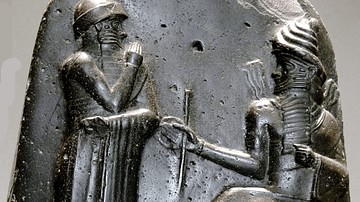
Definition
Hammurabi
Hammurabi (r. 1792-1750 BCE) was the sixth king of the Amorite First Dynasty of Babylon best known for his famous law code which served as the model for others, including the Mosaic Law of the Bible. He was the first ruler able to successfully...
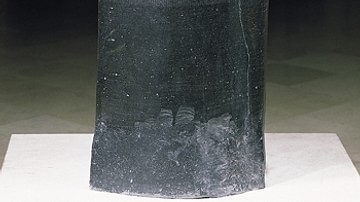
Definition
Code of Hammurabi
The Code of Hammurabi was a set of 282 laws inscribed in stone by the Babylonian king Hammurabi (r. 1795-1750 BCE) who conquered and then ruled ancient Mesopotamia. Although his law code was not the first, it was the most clearly defined...

Image
Hammurabi and Shamash
Hammurabi (standing), depicted as receiving his royal insignia from Shamash. Hammurabi holds his hands over his mouth as a sign of prayer (relief on the upper part of the stele of Hammurabi's code of laws).
Louvre Museum, Paris.
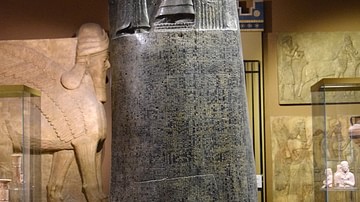
Image
Hammurabi's Law Code
A diorite stele with an inscription of Hammurabi's code of laws. Susa, Babylonia, 18th century BCE. Cast of the original now in the Louvre, Paris. (Pushkin Museum, Moscow)

Definition
Code of Ur-Nammu
The Code of Ur-Nammu (c. 2100-2050 BCE) is the oldest extant law code in the world. It was written by the Sumerian king Ur-Nammu (r. 2047-2030 BCE) or his son Shulgi of Ur (r. 2029-1982 BCE) centuries before the famous Code of Hammurabi was...
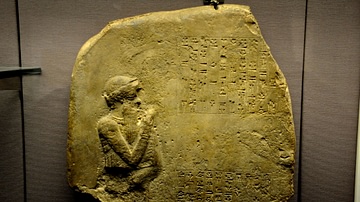
Image
King Hammurabi at Worship
Fragment of a stone stele dedicated by Itur-Ashdum, king Hammurabi at worship. The cuneiform inscription states that a high official called Itur-Ashdum dedicated a statue of a lamma to the goddess Ashratum in her temple on behalf of King...

Image
Code of Hammurabi
The Code of Hammurabi, a set of 282 laws inscribed in stone by the Babylonian king Hammurabi (r. 1795-1750 BCE).
Louvre, Paris.
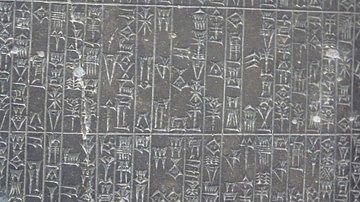
Image
Code of Hammurabi - Detail
Detail of the Code of Hammurabi, a set of 282 laws inscribed in stone by the Babylonian king Hammurabi (r. 1795-1750 BCE).
Louvre, Paris.
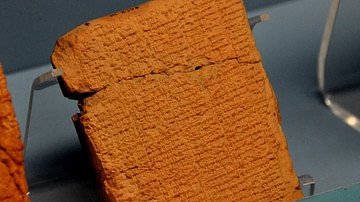
Image
Law Code Tablet of King Hammurabi from Nippur
This terracotta tablet is a smaller version of the original Code of Hammurabi to be used in schools and courts. The tablet was found at Nippur (modern Nuffar, Al-Qadisiyah Governorate, Iraq), southern Mesopotamia. Old Babylonian era, 1790...
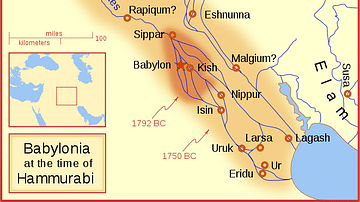
Image
Babylon at the time of Hammurabi
A locator map of Hammurabi's Babylonia, showing the Babylonian territory upon his ascension in 1792 BC and upon his death in 1750 BC. The river courses and coastline are those of that time period — in general, they are not the modern rivers...